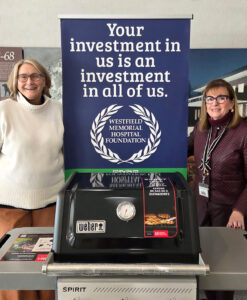Chaut. County Hazardous Materials Response Team Asks Pool Owners Not To Mix Different Forms Of Chlorinating Products

Pictured, a recent rupture of pool equipment due to mixing incompatible chlorine products.
Some incidents caused by a chlorine product shortage is prompting the Chautauqua County Hazardous Materials Response Team to ask pool owners to be cautious when using a brand other than what they have typically been using.
There are four types of chlorinating products. They may look similar but they are incompatible with each other. These are Liquid Chlorine (bleach), Dichlor (granular sodium dichlor-5-triazinetrione), Calcium Hypochlorite (granular and tablets) and Trichlor (granular and tablets trichlor)-5-triazinetrione.
Mixing different chlorinating compounds can result in a volatile reaction capable of causing bodily harm and producing toxic vapors.
County officials say pool owners should not use the wrong chlorine tablets in their chlorinator. Placing the wrong type of chlorinating tablets or mixing different forms in a tablet feeder will cause a reaction that produces considerable heat and toxic gasses. The rapid formation of gas inside a tablet feeder can cause enough pressure to blow the lid off the feeder or can be violent enough to cause the feeder to explode.
“Exposure to these fumes may cause irritation of upper and lower airways, coughing, shortness of breath and/or chemical burns to the eyes or skin,” said Dan Imfeld, Chautauqua County Deputy Fire Coordinator for EMS. “The effects may develop several hours after an exposure. Anyone experiencing issues should seek medical attention immediately.”
Individuals also should not pour chlorinating compounds into their pool’s skimmer.
Chautauqua County Deputy Fire Coordinator for Hazmat Chris Wichlacz offered these precautions for safely handling chlorine products:
¯ Do not get it in eyes, on skin, or on clothing;
¯ Avoid breathing vapors or dust when opening the container;
¯ Avoid creating dust;
¯ Wash thoroughly after handling;
¯ Do not add the product to any dispensing device containing residuals of other products;
¯ Keep your chemical containers tightly closed, properly labeled and away from food, drink and animal feed; and
¯ Keep them separated from incompatible substances and store them in their original container in a cool, dry place.
Those uncertain of what type of chlorine they are using should read the label and consult their pool supplies vendor.




